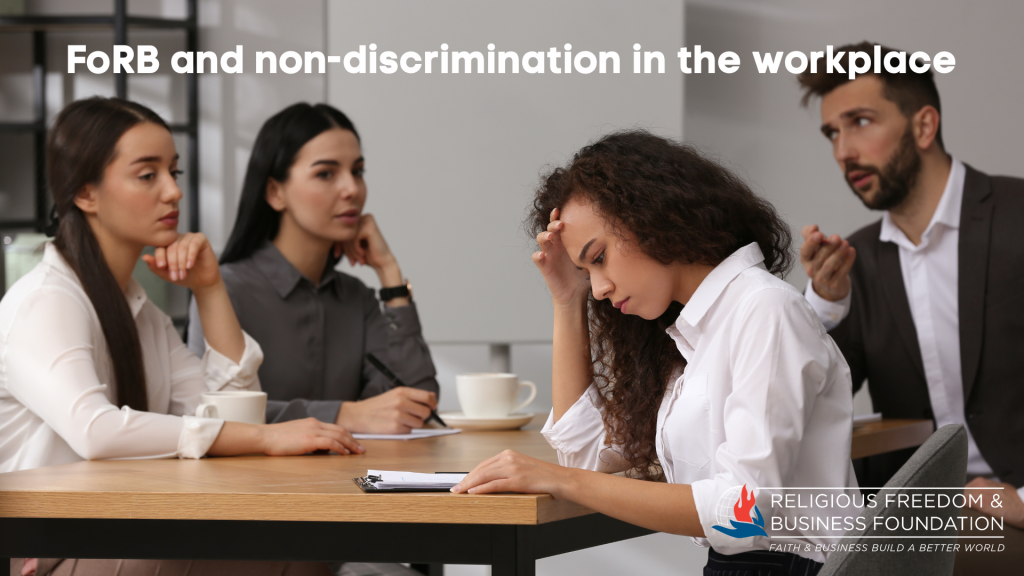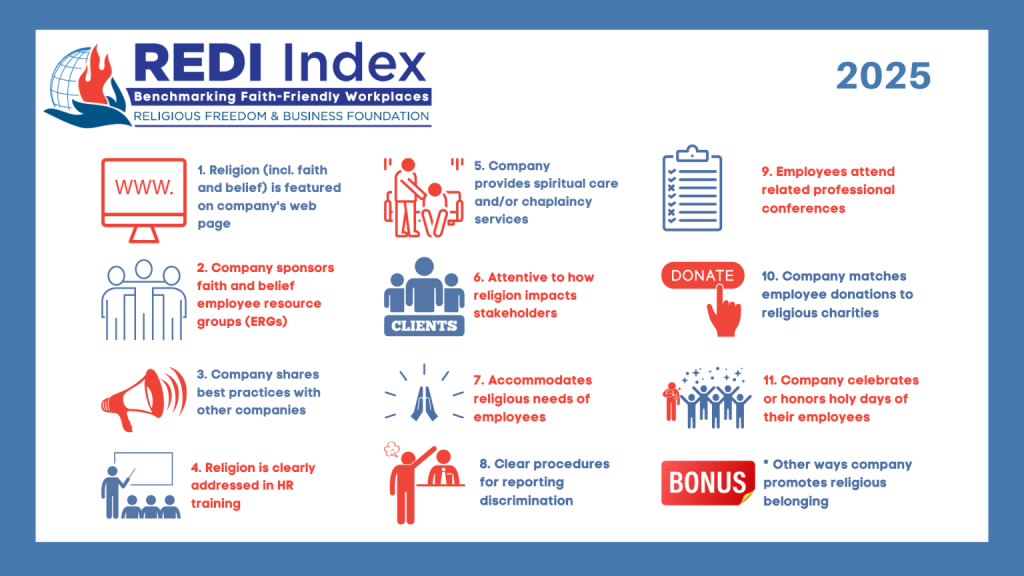
On November 26, I shared the following thought on balancing freedom of religion or belief (FoRB) and gender non-discrimination in the workplace. This was part of a virtual session for the European Commission on Freedom of Religion or Belief (FoRB) and non-discrimination in the workplace. The session is organized by the OSCE Office for Democratic Institutions and Human Rights (ODIHR).
1. Adopt Clear, Inclusive Policies
Equal Employment Opportunity (EEO): Ensure your policies explicitly prohibit discrimination based on any ground such as sex, race, color, ethnic or social origin, genetic features, language, religion or belief, political or any other opinion, membership of a national minority, property, birth, disability, age or sexual orientation.
Religious Accommodation Policy: Include guidelines for reasonable accommodations (e.g., flexible scheduling for religious observances, dress code adjustments, diet, etc.).
2. Foster a Culture of Respect
Training & Awareness: Provide regular training on religious diversity and gender inclusion. Emphasize that respect for differences is a core value.
Employee Resource Groups (ERGs): Support ERGs for faith-based groups and women’s groups to promote dialogue and mutual understanding.
3. Implement a Structured Accommodation Process
Interactive Dialogue: When an employee requests accommodation (religious or gender-related), engage in a collaborative process to find reasonable solutions.
Consistency: Apply accommodations fairly and consistently to avoid perceptions of favoritism or bias.
4. Avoid Coercion or Hostility
Proselytizing or Harassment: Make clear that employees can share beliefs respectfully but cannot pressure others or create a hostile environment.
Safe Reporting Channels: Provide confidential ways to report concerns without fear of retaliation.
5. Align with Legal Standards
Title VII (U.S.): Requires reasonable accommodation for religious practices unless it causes undue hardship.
Article 21 (Europe): Article 21 of the EU Charter of Fundamental Rights prohibits any form of discrimination.
Gender Non-Discrimination Laws: Comply with local and national laws protecting gender and expression.
6. Promote Dialogue and Education
Interfaith & Inclusion Events: Host voluntary sessions that celebrate and educate employees on different perspectives.
Conflict Resolution Mechanisms: Train managers to mediate when religious and gender rights intersect.
7. Leadership Commitment
Top-Down Support: Leaders should model respect for both religious freedom and gender equality.
Communicate Values: Reinforce that inclusion is not about choosing one right over another, but honoring both.
Added resource: Track and benchmark progress using our Faith-Friendly Workplace REDI Index.

